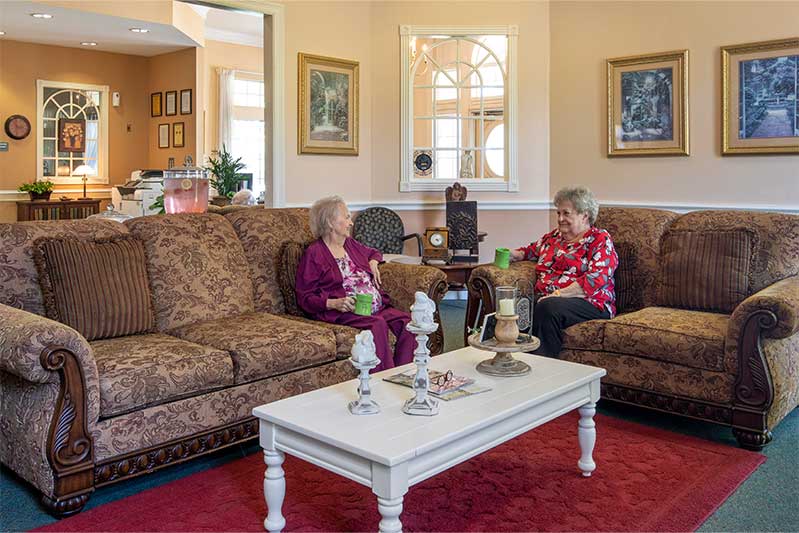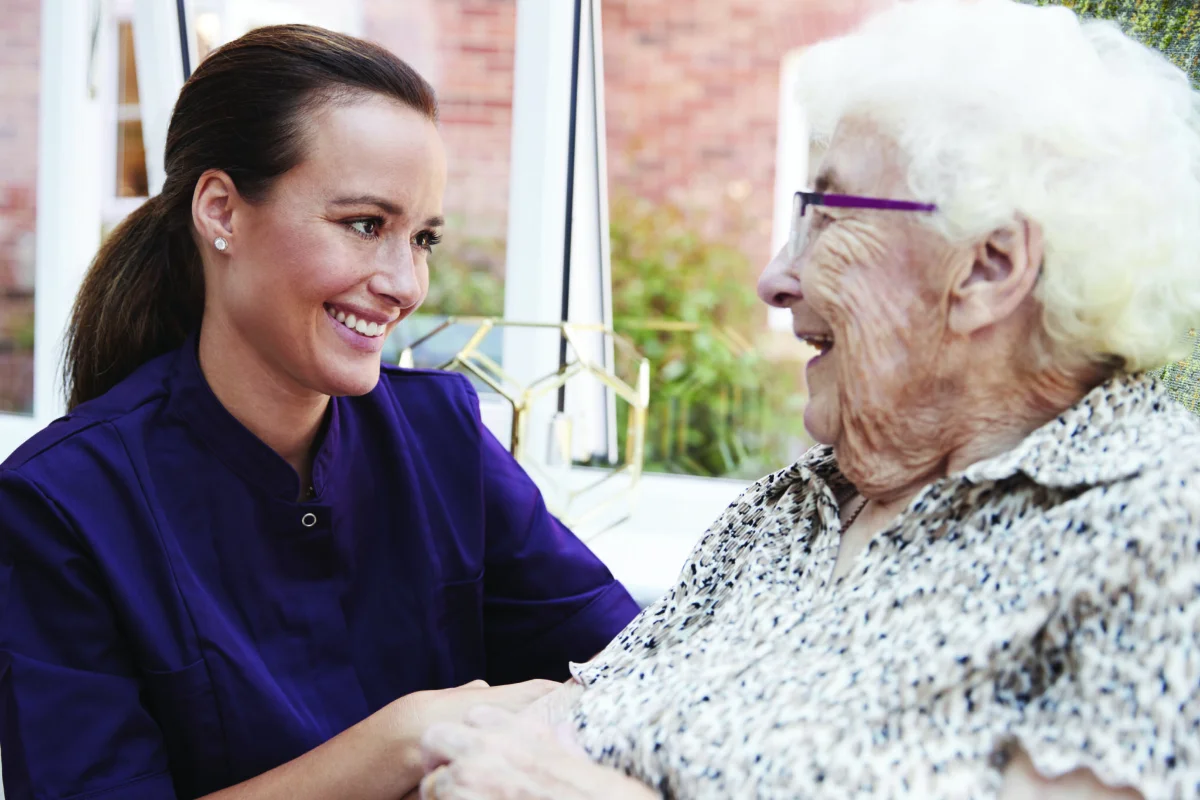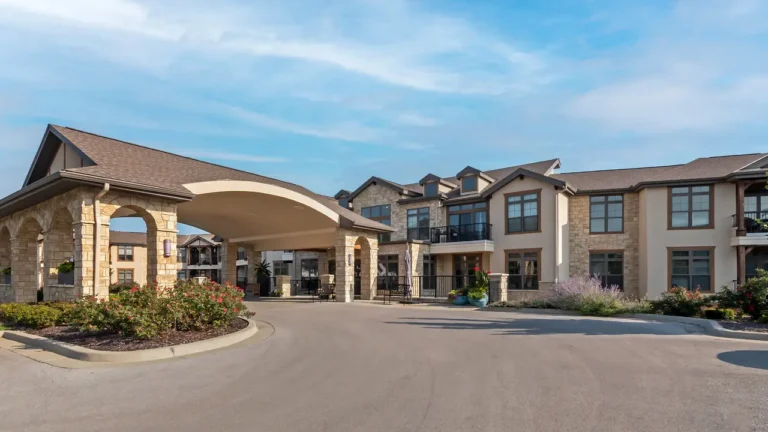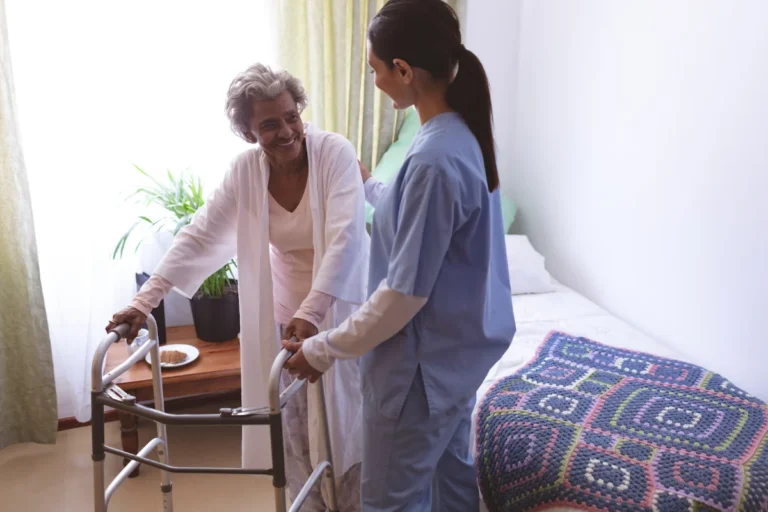If you’re reaching the point where you know you need some help with daily living – or a loved one is reaching that point – you may be wondering whether in-home care or assisted living is a better option for your family.
There are a variety of different types of senior care, including independent living, assisted living and in-home care. There are benefits and limitations when it comes to both assisted living and home care for seniors, based on a variety of factors that fit your situation best.
What Is Involved in At-Home Caregiving for Seniors?

In home-care situations, seniors would like to remain in their home, but they require help with daily tasks such as housekeeping, bathing and dressing. In these instances, an in-home caregiver would spend time at home completing these tasks and providing one-on-one companionship for the senior.
In-home caregiver support is traditionally less expensive than assisted living residential care, but this also comes at a cost. The caregiver may not be able to live with the senior full-time, and caregiver burnout is a very real stressor on friends and family, limiting time for their own self-care and mental health.
In many families, the first step to in-home caregiving is utilizing a family member to complete daily living tasks. These caregivers may be unpaid and find that it is difficult to juggle caregiving with other daily tasks in their own lives.
Both paid and unpaid caregivers reported an overwhelming increase in both physical and mental disorders. In fact, 40%-70% of family caregivers report clinical symptoms of depression, and 23% report that caregiving has negatively impacted their physical health.
While many may choose to live in their homes long-term, it may not be possible. In a 2021 AARP study, it was discovered that more than 75% of seniors 50 and over would need to modify their residences so that they or a loved one could continue to reside there.
- 79% said they would need to modify bathrooms with grab bars or no-step showers
- 71% said their home has inside and outside accessibility issues
- 61% said they would need an emergency response system
- 48% said they would need smart-home devices like a voice-activated home assistant or a doorbell camera
Home care can be a good option for those who are able to still live somewhat independently and are safe in their home. However, there comes a time for many people when it’s clear that they are not able to care for themselves completely in their own home.
At this point, many may choose to move to an assisted living senior community for the additional help and care that they need to stay happy and healthy.
The Benefits of a Tutera Assisted Living Community

Many seniors transition to assisted living to live a more carefree lifestyle, without having to worry about house upkeep, maintenance or safety concerns of being alone. With 24-hour caregiver support at assisted living communities, safety is top of mind for the resident should they need help through daily tasks or in case of an emergency.
In a Tutera senior living community, the burden of caregiving is lifted and brings a sense of peace to friends and family who know that their loved one is now in safe and secure hands.
In Tutera communities, with regular check-ins and assistance, seniors are able to live independent lives with the extra support they need to thrive. Assisted living care also has a lot of advantages for you or your loved one.
A senior living community also offers other benefits, such as meaningful friendships with fellow residents, planned social activities and versatile dining options to fit anyone’s needs.
How Do I Know When It’s Time to Transition to an Assisted Living Community?
When considering the right senior care option for you, ask yourself how much care you or your loved one needs and if it is still feasible to provide that support in the home. Now is the time to be brutally honest – how much emotional toll and worry is being expended to keep the home residence? Weighing these options is an important part of the decision-making process.
If you think you or your loved one may be ready for assisted living, here are a few signs that it may be the right time:
- Safety or accessibility concerns in the home
- Your loved one is spending time alone and becoming self-isolated or depressed
- Housework and/or hygiene is neglected or a concern
- Medical care is needed more often; falls are a safety concern
- Personal care tasks are becoming more difficult
The next consideration for assisted living vs. in-home care is your budget. Factor in the physical, emotional and monetary expenditures that in-home care is costing your family on a daily and monthly basis. In-home health care can be costly, with the median cost of care about $24 per hour. Medicare can offset some of these costs as it pays for some health services, but it doesn’t always cover the tasks that aren’t considered health related – like daily housekeeping help.
Cobbling together a collection of partial solutions at home can be very expensive. The cost of housekeeping, meals, laundry services, cabs, senior day services, home health services and the regular costs of living can add up to more than the cost of residential services in an assisted living facility.
This decision can be difficult to make, and you may not exactly know when to make it. However, our team is here to help find the right solution for you, and it will bring a sense of peace and ease the burden and stress of caring for your loved one.
Explore all options! Before deciding between in-home care and a senior care community, if you feel that your family needs more help, visit a Tutera assisted living community and experience the ease and joy that living in a senior living community can bring.







